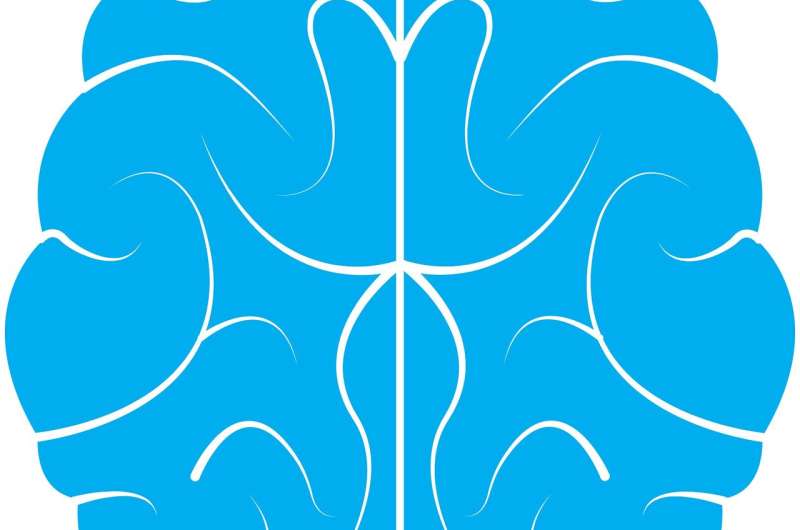Disrupted networks link overlapping cognitive deficits in psychiatric disorders

Psychiatric disorders share common alterations of functional connectivity between three core brain networks involved in cognition, according to a meta-analysis published in Biological Psychiatry. The network alterations were localized in brain regions underlying general cognitive performance. The study suggests that the alterations in these networks contribute to the cognitive dysfunction present in multiple psychiatric disorders.
The alterations in functional connectivity, which emerged from a meta-analysis of 242 functional brain imaging studies in people with a variety of psychiatric disorders, were found in the three large-scale networks considered to be particularly important for complex cognition—the default mode network; frontoparietal network; and the salience network. Further, analysis of 363 structural brain imaging studies revealed reduced gray matter that was confined to the altered networks, tightly linking structural and functional alterations.
Importantly, the study provides the first evidence from a meta-analysis of common functional connectivity alterations in neurocognitive networks across psychiatric disorders. "This new knowledge calls for studying brain-based diagnostic biomarkers of psychiatric disorders that are beyond traditional diagnostic boundaries," said senior author Yong He, Ph.D., Beijing Normal University, China.
Although psychiatric illnesses are considered to be distinct disorders, cognitive dysfunction appears in most of them. This overlap of symptoms across psychiatric disorders has been a major challenge to precisely categorize patients. Although enormous progress has been made in characterizing the neural correlates of diagnoses and symptoms over the past 25 years, neuroimaging biomarkers have yet to contribute to the psychiatric diagnostic process.
"Dr. He and colleagues provide an important clue as to why neuroimaging diagnostic biomarkers have made limited progress," said John Krystal, MD, Editor of Biological Psychiatry. "This finding pushes us to rethink the potential role of neuroimaging in the diagnostic process."
The shared neurocognitive network alterations suggest that neuroimaging may be providing a measure of symptom-related pathology not directly related to the disease process. This could pose a problem, as the study of psychiatric disorders—which are defined by collections of symptoms—is primarily limited to the study of behaviors. It is possible that disease-specific elements of biology exist, but the similarity between disorders in this study indicate that greater efforts may be needed to adjust for common elements of pathology in the search for "disease-specific" biomarkers.
More information: Zhiqiang Sha et al, Common Dysfunction of Large-Scale Neurocognitive Networks Across Psychiatric Disorders, Biological Psychiatry (2018). DOI: 10.1016/j.biopsych.2018.11.011



















